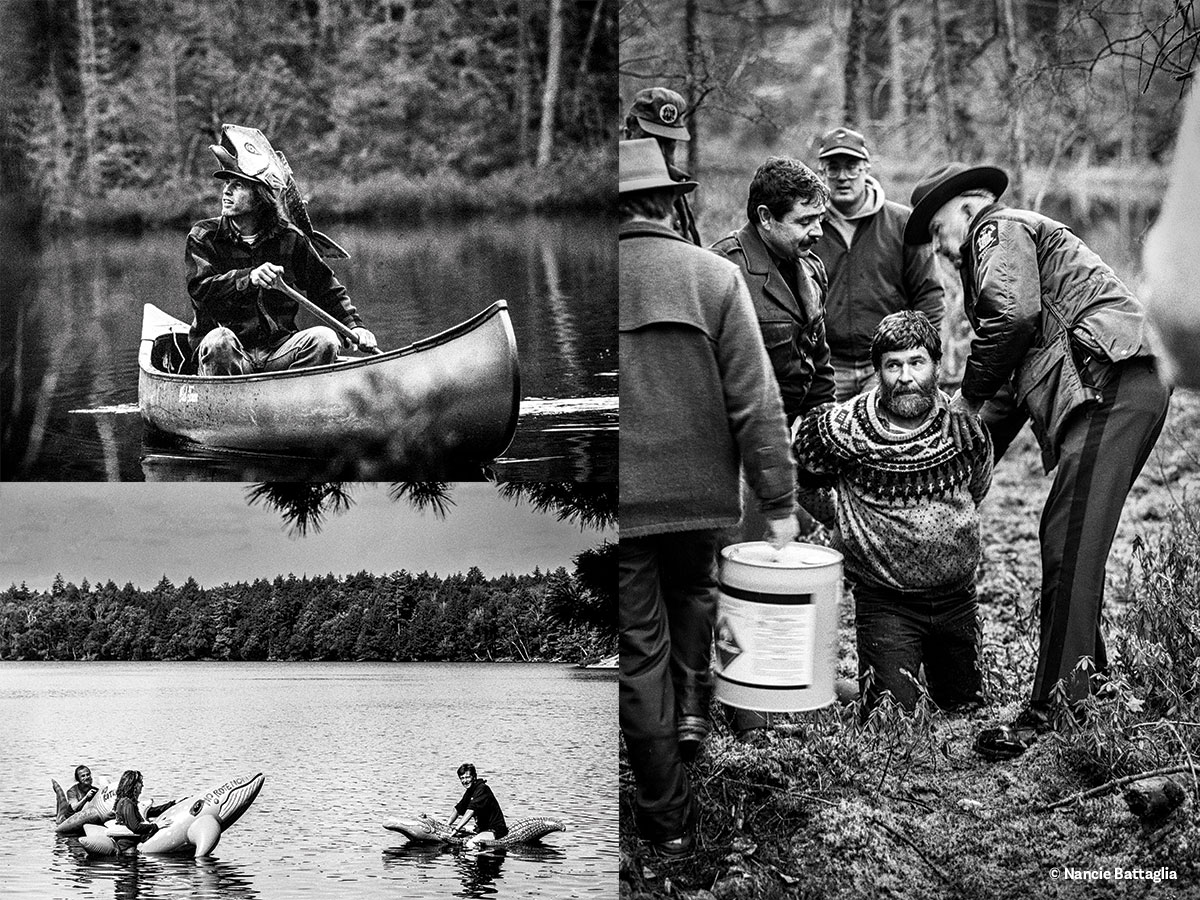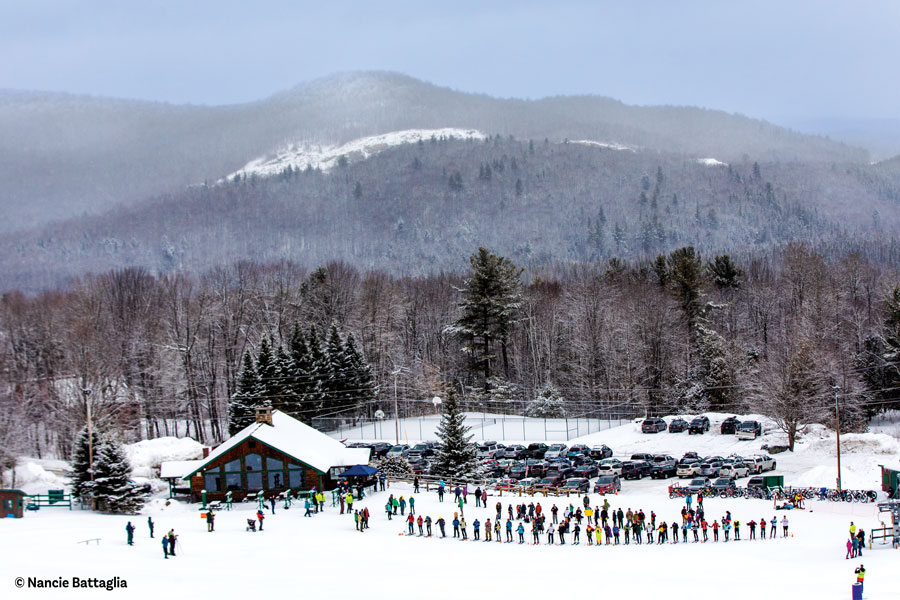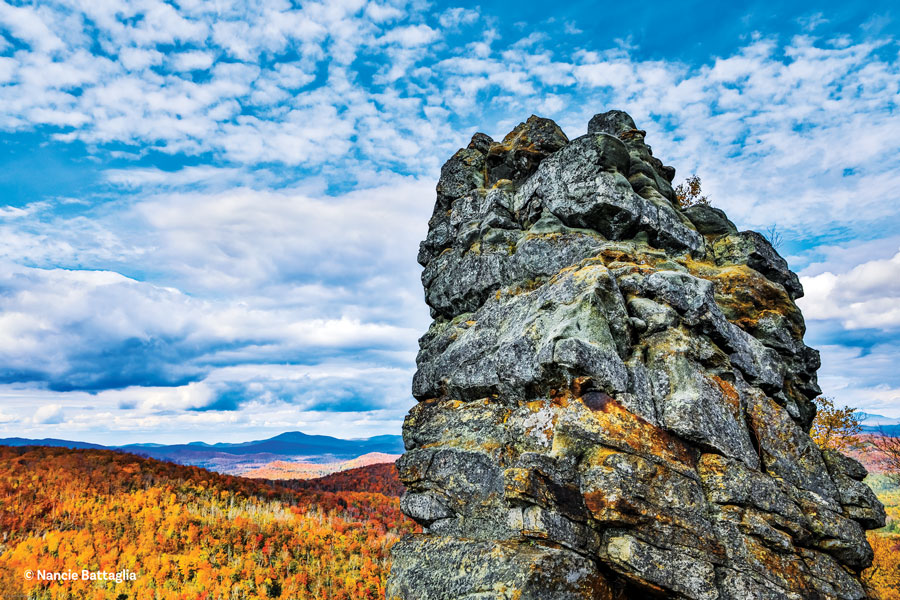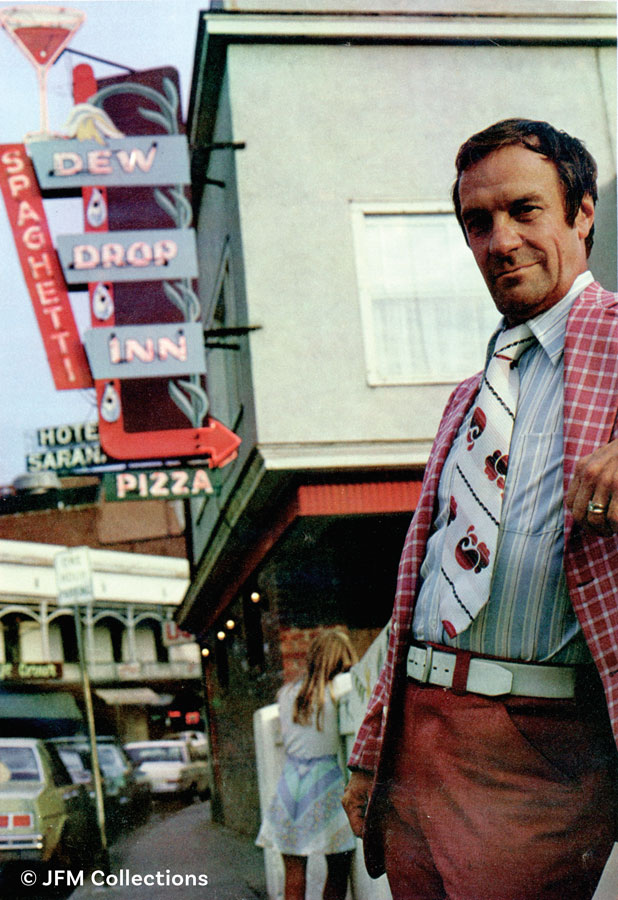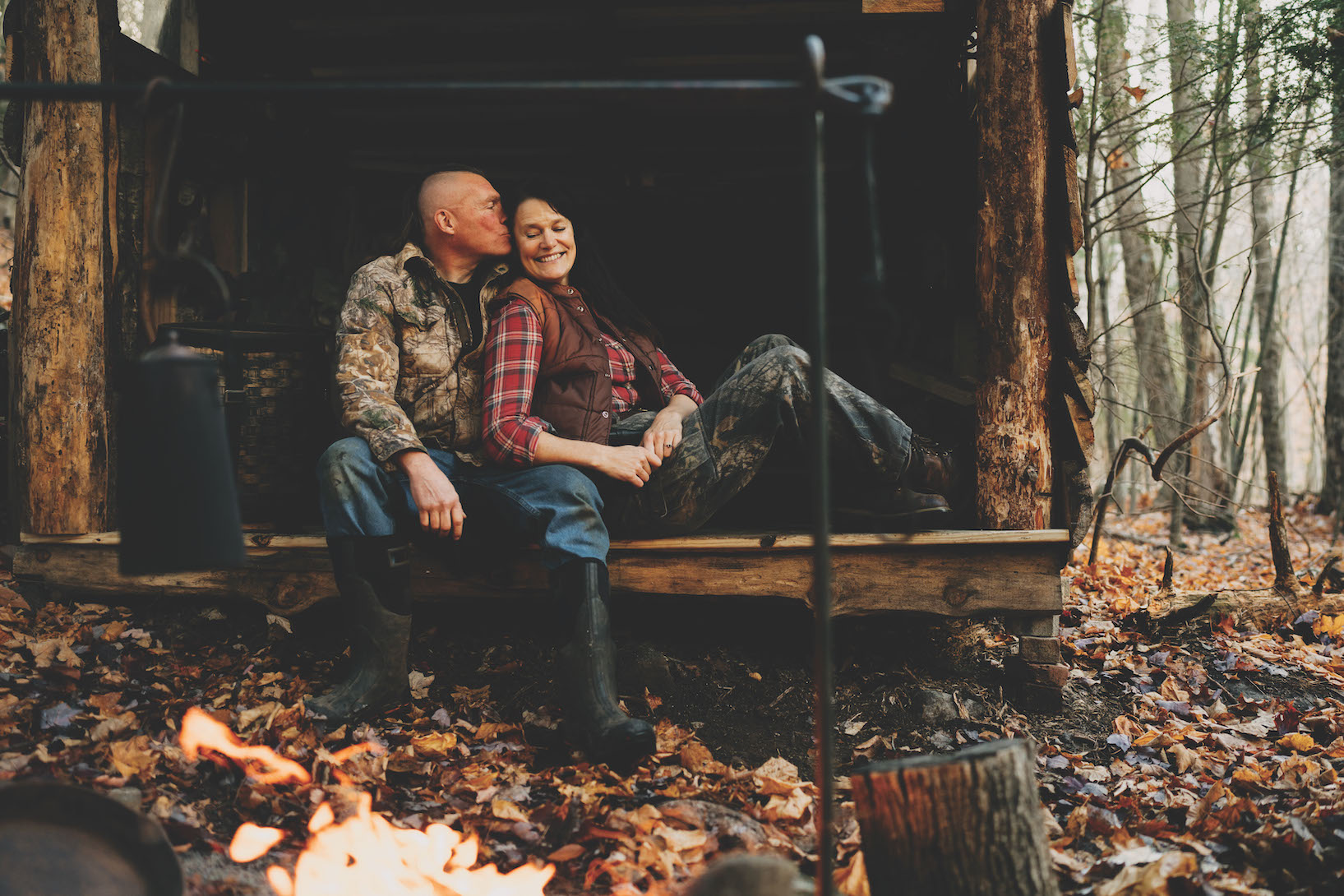Hotel photograph by Nancie Battaglia. Wedding and camping photographs courtesy of the author. Photo illustration by Gwen Jamison Vogel
Some of my kin consider it odd that a person who already “lives out in the woods,” as they say of me, spends much of each summer many miles away, in the deeper woods of the Adirondacks. I suppose they are right. My home is at the end of a long gravel driveway in the Alleghenies of southwestern New York and is surrounded by forest, and my Adirondack cabin, located on a forested hillside at the end of a seasonal road between Blue Mountain Lake and Long Lake, is two miles from the nearest power line. The cabin lacks running water, even from a pitcher pump, but a short walk takes me to the running Salmon River. To some of the people I know, it must seem that my trips to the Adirondacks are journeys to hardship. I ease their concern by telling them I eat some of my meals at the Adirondack Hotel in the hamlet of Long Lake. “Well, I can imagine why you must need breaks from your cabin,” one of them said.
I told her I loved the hotel. She misunderstood my attachment to it, but I didn’t explain. My occasional meals there are not meant to be an escape from roughing it at the cabin. I’m not bored or deprived at the cabin. I’m visited by wildlife, their beckonings and complaints. The cabin becomes crowded with characters who step from the novels I read there. I take in the view of the river where it winds into a beaver meadow and of the distant peak of Blue Mountain where it has been harpooned by a cell tower. I study maps and plan the hiking and canoe outings I will take. What surprises me is that in the Adirondacks I feel the most sentimental attachment to a human-made structure. And I don’t mean my cabin: I mean the century-old, wooden four-story Adirondack Hotel—where some new guests are frightened upon first noticing the mounted black bear just inside the front door, standing on its hind legs, teeth bared, claws unsheathed.
Until a few years ago, I didn’t fully understand my attachment to the hotel, even though my wife and I spent a night there during our roaming honeymoon, which we mostly divided between hiking and camping along the Oswegatchie River in the Adirondacks and camping in Maine within sight of the Atlantic Ocean. Summer after summer, Margaret and I took canoe and camping trips in the central Adirondacks, eventually with our son and daughter, and usually we ate an afternoon meal at the hotel before we drove home. Our honeymoon room in the hotel was sultry and we had to share a bathroom with the couple who were staying in the adjacent room; we liked falling asleep to the Sisyphean grumbling of the Oswegatchie rolling endlessly over High Falls better. The hotel meals were always appetizing and filling, but not as satisfying as hot dogs speared by a stick and blackened over a campfire after hours of canoeing. The view from the hotel porch is beautiful—of Long Lake and the Seward Range beyond—but has never seemed as perfect as the view from any pond-side campsite, however cramped and uneven or infested with mosquitoes and flies, that my family claimed as “ours” for a few days. Yet my sentiment is more attached to the hotel than to anywhere else in the Adirondacks.
I once worriedly asked an employee of the hotel what was being done to prevent the place from accidentally burning down. She told me that the first version of the hotel burned in 1898. The hotel was rebuilt in 1899. She explained the fire detection system and that whenever guests are caught smoking, a rare occurrence, they are ejected from the premises.
The endurance of the hotel appeals to me. Even so, the hotel is young compared to the Adirondacks as a whole. If you know where to look, you can visit trees centuries old and anchored by buttressed roots and still healthy despite the windstorms, despite the forest fires, despite the damaging insects, despite the damaging fungi, despite the droughts, despite the floods, despite the generations of damage by humans that have come and gone. The ponds and lakes fill large ancient holes gouged by glaciers. The waters and old trees remind me that a human lifetime is brief; and the hotel reminds me of the seasons I have witnessed.
If you sit on the hotel porch and can take your eyes from the lake, which resembles a fiord, you can watch yourself climbing the steps from the parking lot. Not you exactly, but a version. You as a child, you young and in love, you when you are or will be old. If you are observant and reflective and have loved any phase of your life, it is difficult to avoid liking the hotel, even if you believe it foolish to become very attached to a building vulnerable to slow rot or rapid burning.
I understood my attachment better one afternoon when I met a young honeymoon couple on the hotel porch. Margaret was home in the Alleghenies in bad health and in the temporary care of our daughter.
The couple was sitting at the table next to mine. I was drinking beer and eating a sandwich when the husband asked me about the solo canoe strapped atop the cap of my pick-up truck. I’m unsure why he supposed I was the owner, but perhaps my three days of beard growth and dingy clothing led him to assume I had just returned from a canoeing and camping trip, though I hadn’t. The couple and I got to talking more and I learned they were from my region of the state, and were splitting their honeymoon between the Adirondacks and Maine just as Margaret and I had decades earlier. I gave them good advice—though gratuitous, hackneyed and nearly impossible to actually live out. I said, “Appreciate every moment of your marriage.”
You can imagine the unspoken memories and emotions that claimed me there on the hotel porch and again now as I recall that afternoon. I don’t need to tell you anything more about my relationship with Margaret, who died on the first day of spring three years after my encounter with the young honeymoon couple. After all, you were once or are now in love with a version of her or, God help you, a version of me.
Two months after I became a widower, I opened my cabin for the first time that year. I was relieved to find no broken windows or roof leaks or sign of carpenter ants. I carried my solo canoe from the cabin and strapped it atop the cap of my truck because I intended to paddle and fish a pond that evening. I lugged a generator, stocked cooler, canoe bag stuffed with clothing, and a variety of gear up the steep slope to the cabin, and I unpacked. I walked to the river and fetched two buckets of water and took them inside. It was a lovely afternoon. I returned to my truck and drove to the Adirondack Hotel.
Find the Adirondack Hotel (518-624-4700, www.adirondackhotel.com) at 1245 Main Street, in Long Lake.

















